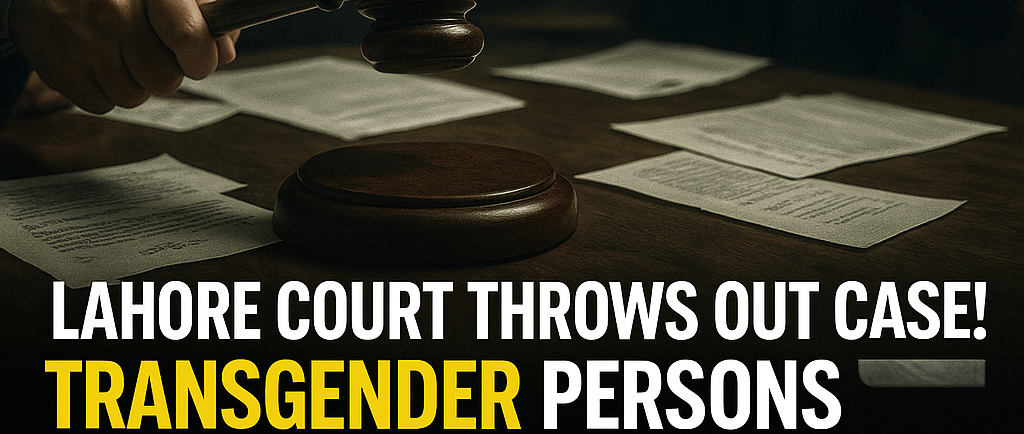Lahore Court Acquits Transgender Persons in Viral Party Case Over Lack of Evidence
A Lahore magistrate has dismissed charges against transgender persons accused of hosting an “objectionable” party, citing no evidence and procedural flaws. The case sparked debate on human rights and misuse of obscenity laws in Pakistan.
NATIONAL
8/18/20252 min read


Lahore Court Acquits Transgender Persons in Viral Party Case
Lahore: A local magistrate on Sunday threw out the case against a group of transgender individuals accused of hosting an “objectionable” private gathering, ruling that police failed to present credible evidence.
According to the court order, obtained by Dawn.com, the charges were dismissed after the judge found “no incriminating material available on record connecting the accused with the alleged offences.”
The court also rejected police’s request for a 10-day physical remand, stating: “The accused persons present in court are hereby discharged in this case.”
The order highlighted serious procedural lapses, noting that no independent witnesses were included during the raid, no statements were recorded, and no official permission for conducting a raid on private property was provided. The judgment added: “Prima facie, it appears that the accused persons were implicated in this case on the basis of forged and concocted facts.”
Case Background
Advocate Haider Butt, representing the accused, confirmed to Dawn.com that all detainees were released after the case was officially dismissed.
The First Information Report (FIR), lodged at Lahore’s Naseerabad police station, stated that the Punjab government had ordered action after videos of the private event went viral on social media. According to the FIR, the clips — allegedly showing 50 to 60 individuals, including transgender persons — contained “explicit content,” which prompted public outrage and a swift response from authorities.
Fashion designer Maria B first shared the videos online, urging action against “transgender activists” and claiming such parties went against the country’s moral values.
The case was registered under Sections 292 (sale of obscene material), 292-A (printing/advertising obscene matter), 294 (obscene acts in public) of the Pakistan Penal Code, along with Section 6 of the Sound System Act.
Police and Government Stance
DIG (Operations) Lahore, Faisal Kamran, defended the arrests at the time, stating: “Promoting obscenity under the guise of a party or photoshoot is a serious offence. All illegal and unethical activities will be dealt with strictly.”
He also linked the incident with other crackdowns, mentioning that the screening of the internationally acclaimed film Joyland — which features a transgender love story — was also halted in Lahore. He stressed: “Any activity conflicting with Islamic values and national law will face strict action.”
Activists Respond
Transgender rights activist Nayyab Ali, however, rejected claims that community leaders were involved. In a post on X (formerly Twitter), she clarified that those seen in the viral clips were “not trans activists” and had “no connection with our movement.”
Ali also criticized Maria B’s role in circulating the footage: “If this is ‘fahashi’ (vulgarity), then who spread it to millions? Maria B did — and that itself is a crime.”
Legal experts and human rights groups have since raised concerns about the misuse of morality and obscenity laws, warning that vague provisions often enable arbitrary action and disproportionately target marginalized communities such as transgender persons.
Explore
Your lens into Pakistan's vibrant stories.
Connect
Discover
+92-300-0440097
© 2025. All rights reserved.
